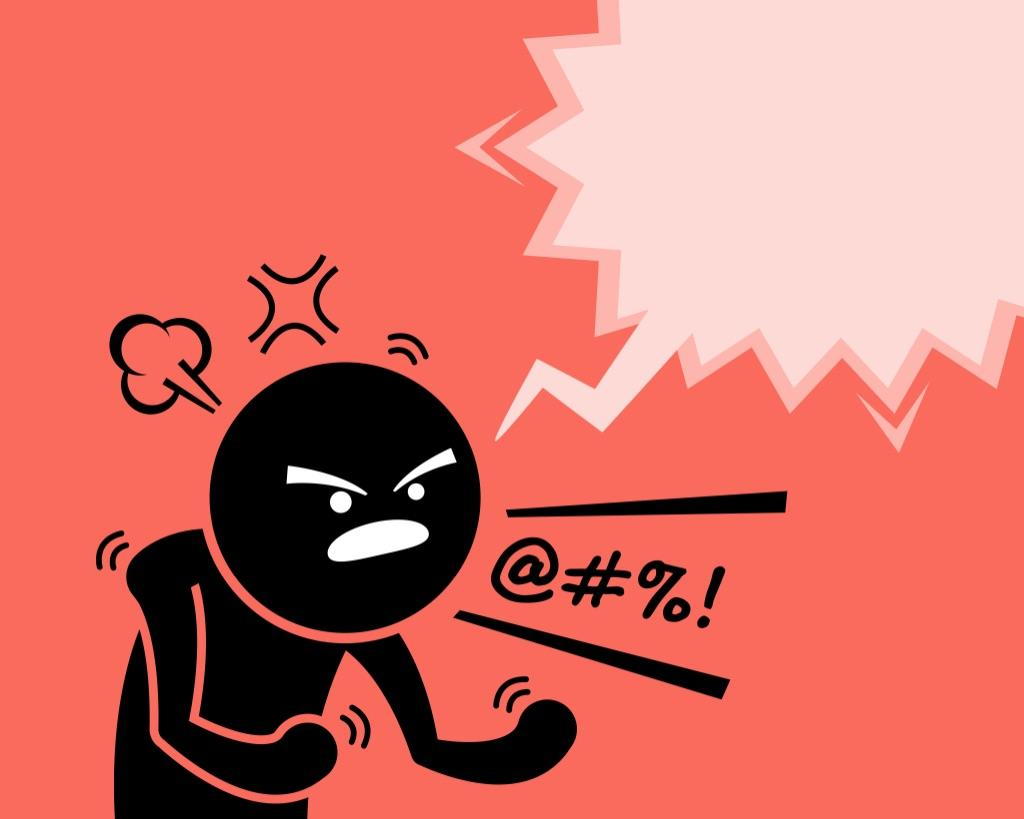Why Are People So Very Angry?

The other day I witnessed something that has become all too common while driving on one of the roads. One car was tailgating the car in front of him, blaring his horn and, as he changed lanes and rushed past, he stuck out his arm and gave the proverbial finger to the drive he was harassing. That obscene gesture could have been interpreted by the first driver as an invitation to fight. This, too, happens too often. When people angrily jump out of their cars to confront one another, someone is shot and even killed. According to the website, http://www.safemotorist.com:
“Over a seven-year period, 218 murders and 12,610 injuries were attributed to road rage.”
However, the problem of anger is not restricted to road rage. Every day in America countless numbers die from gunshot wounds. According to the Pew Research Center:
In 2017, the most recent year for which complete data is available, 39,773 people died from gun-related injuries in the U.S., according to the CDC. This figure includes gun murders and gun suicides, along with three other, less common types of gun-related deaths tracked by the CDC: those that were unintentional, involved law enforcement or whose circumstances could not be determined. It excludes deaths in which gunshot injuries played a contributing, but not principal, role. (CDC fatality statistics are based on information contained in death certificates.)
(Help is available at [email protected])
The problem is not restricted to road rage and gun violence. There are terrible statistics for domestic violence and rape, child abuse, suicide and other means of killing or violating people.
We must return to the question which is the subject of this article. Why are people so angry that they kill one another or themselves in the form of suicide?
http://www.allanschwartztherapy.net
There is a connection between depression, anger and feeling helpless. It is both depressing and anger-provoking to feel like a victim or as if there is nothing the individual can do to correct or improve. There is nothing more passive than to sit in front of the TV watching things there is nothing we can do to change.
Is there a failure of empathy in today’s world? It has been suggested that we have become a narcissistic society with the emphasis only on our own needs without considering the needs of others. The driver who tailgates swears and obscenely gestures at the other driver. does not consider how that driver might feel nor how he might cause an accident.
It has also been suggested that we, as a people, have become much more impulsive. There seems to be a drive towards immediate self-gratification. In other words, we have forgotten how to wait. This can sometimes be seen in a line in the bank or in the grocery store check-out. Tempers start to flare, much like happens with little kids.
Connected to the item listed above, one of the most serious causes of all of this anger are drug and alcohol abuse. They cause people to be more impulsive, acting harmfully and without self-control. Many of the people who use drugs and alcohol are attempting to self-medicate whether they are aware of it or not.
Stress is an important factor in explaining why people are depressed and angry. Single parent homes make it difficult to raise children, especially when the single parent has to work to make ends meet. In a similar way, financial pressures, joblessness, low income and problems at work all contribute to people feeling stressed.
Fear of mass shootings and political discord both cause worry, fear, and pessimism about the present and future.
This from the American Psychological Association is revealing: https://www.apa.org/news/press/releases/2019/11/americans-significant-stress
People watch the news and are aware that the world is unstable. For at least some this creates a sense of insecurity. This insecurity also results from American politics which seems to carry with it many angry politicians.
Many are worried about global warming which also arouses a sense of anxiety and helplessness.
Another way to express all of this is to say that people’s nerves are edgy and that is why when they get on the road and drive some of them to lose control of their tempers and flare into confrontation and conflict.
What can people do to reduce their feelings of anger?
Psychotherapy is one way. Contact me at [email protected]
Behind the wheel of your car do not make eye contact when and if someone tailgates or throws an obscene gesture your way. Most definitely do not stop and get out of your car. Do not try to increase speed and catch up with the other car. Do not tailgate. Instead, take some deep breaths, listen to music on your radio and relax. If changing lanes will help do so carefully.
The Mayo Clinic Has Ten Strategies to Help Reduce Stress and Anger:
Anger management: 10 tips to tame your temper
Keeping your temper in check can be challenging. Use simple anger management tips — from taking a timeout to using "I" statements — to stay in control.
Do you fume when someone cuts you off in traffic? Does your blood pressure rocket when your child refuses to cooperate? Anger is a normal and even healthy emotion — but it's important to deal with it in a positive way. Uncontrolled anger can take a toll on both your health and your relationships.
Ready to get your anger under control? Start by considering these 10 anger management tips.
Think before you speak
In the heat of the moment, it's easy to say something you'll later regret. Take a few moments to collect your thoughts before saying anything — and allow others involved in the situation to do the same.
Once you're calm, express your anger
As soon as you're thinking clearly, express your frustration in an assertive but nonconfrontational way. State your concerns and needs clearly and directly, without hurting others or trying to control them.
Get some exercise
Physical activity can help reduce the stress that can cause you to become angry. If you feel your anger escalating, go for a brisk walk or run, or spend some time doing other enjoyable physical activities.
Take a timeout
Timeouts aren't just for kids. Give yourself short breaks during times of the day that tend to be stressful. A few moments of quiet time might help you feel better prepared to handle what's ahead without getting irritated or angry.
Identify possible solutions
Instead of focusing on what made you mad, work on resolving the issue at hand. Does your child's messy room drive you crazy? Close the door. Is your partner late for dinner every night? Schedule meals later in the evening — or agree to eat on your own a few times a week. Remind yourself that anger won't fix anything and might only make it worse.
Stick with 'I' statements
To avoid criticizing or placing blame — which might only increase tension — use "I" statements to describe the problem. Be respectful and specific. For example, say, "I'm upset that you left the table without offering to help with the dishes" instead of "You never do any housework."
Don't hold a grudge
Forgiveness is a powerful tool. If you allow anger and other negative feelings to crowd out positive feelings, you might find yourself swallowed up by your own bitterness or sense of injustice. But if you can forgive someone who angered you, you might both learn from the situation and strengthen your relationship.
Use humor to release tension
Lightening up can help diffuse tension. Use humor to help you face what's making you angry and, possibly, any unrealistic expectations you have for how things should go. Avoid sarcasm, though — it can hurt feelings and make things worse.
Practice relaxation skills
When your temper flares, put relaxation skills to work. Practice deep-breathing exercises, imagine a relaxing scene, or repeat a calming word or phrase, such as "Take it easy." You might also listen to music, write in a journal or do a few yoga poses — whatever it takes to encourage relaxation.
Know when to seek help
Learning to control anger is a challenge for everyone at times. Seek help for anger issues if your anger seems out of control, causes you to do things you regret or hurts those around you.
https://www.mayoclinic.org/healthy-lifestyle/adult-health/in-depth/anger-management/art-20045434
Please contact me at my website: http://www.allanschwartztherapy.net
Or at this email address: [email protected]
Your comments are welcome and encouraged. Send them to me using the email address.
